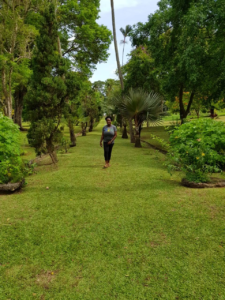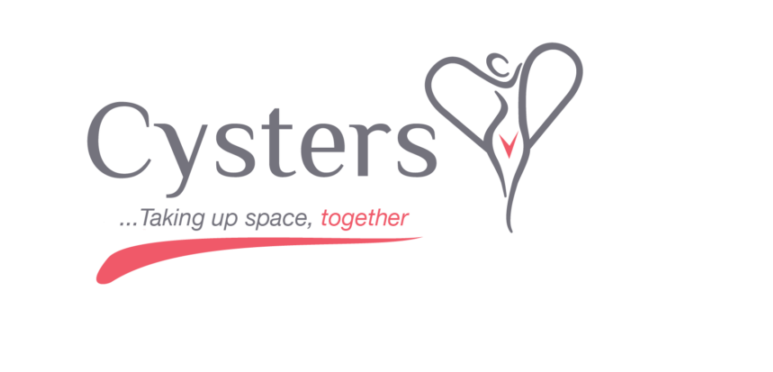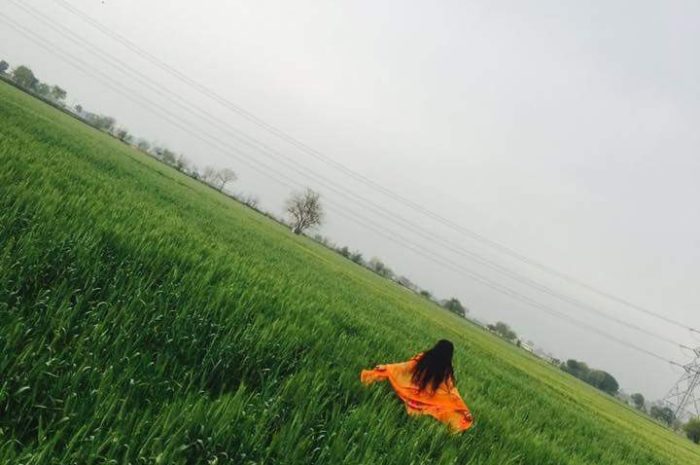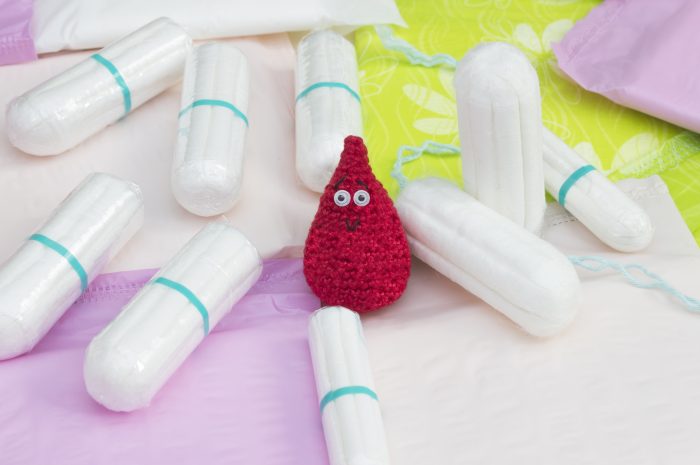
From the time I started having my periods at age 11, I do not remember having a pain free period. I spent my teenage years going from doctor to doctor for relief. Most of them told me that it was my “normal”, gave me pain killers and anti-nausea medication then would send me on my way. Eventually, at age 17, I was diagnosed with menorrhagia (abnormally heavy or prolonged period) when my period began lasting for 10 and often times more days. However, I wasn’t too worried because my mother had horrible periods and doctors had convinced us that that was our normal and left it at that. No doctor ever recommended an ultrasound or lab tests. No one ever referred me to a specialist. So I continued on with my life believing that there was nothing seriously wrong.
How was I to know that things were only going to get worse? By my early twenties, I knew that something was wrong but there were doctors who told me that it was all in my head and that I was fine. My lab test results were always in normal range and still no one sent me for an ultrasound. I was tired all the time. I was nauseous, had constipation, restless sleep, experienced severe pain in my back, stomach and legs, and spent way too much money buying feminine products due to an extremely heavy flow which was now lasting up to 14 days.
I just couldn’t take it anymore! In my late twenties, I made my first appointment with a doctor who sent me for an abdominal ultrasound to help us understand what was happening to me. The results showed that I had several small fibroids that did not require surgery. She however placed me on oral contraceptives to regulate my period, and this helped to reduce it to 7 to 8 days.

A few months later, I moved to another country to pursue graduate studies; but soon after, I stopped taking the contraceptives because I was feeling better. Guess what happened? Yes, you are correct! My period started flowing heavy again and was more painful than before. I went to the doctor who sent me for an ultrasound which showed that in addition to the small fibroids, I now had a growth in my right ovary. My doctor there was not sure what it was, so, I was sent for further tests including screening for ovarian cancer. Thankfully, the tests showed that the growth was only a cyst and I was treated with steroids which helped to reduce the size of the cyst and my symptoms improved.
I returned to my home country two years later following the completion of my studies. As I was doing well, I decided not to follow-up with the doctor that I was seeing previously. Within a few months, my periods worsened and I was feeling severely fatigued. So, I scheduled an appointment with the doctor who recommended that I have an ultrasound and several lab tests done to determine my current health status. While I waited for the results, I was placed on medication to reduce the heavy bleeding. After I received my lab results, my blood count was low so I was placed on an iron supplement to improve my hemoglobin count and I restarted oral contraceptives. The ultrasound showed that I had dominant fibroids and an enlarged right ovary with a large cyst.
Over the course of several months, the cyst was monitored by several ultrasounds at different points during my menstrual cycle. The ultrasounds revealed that the cyst was increasing in size and in turn causing my ovary to get larger. In February 2017, I was told that surgery was needed to remove the cyst and most likely also the ovary that it was affecting. My doctor discussed with me that endometriosis was potentially the cause of the cyst and the other symptoms that I was experiencing.
Endo-what?! I had never heard that word in my life and I didn’t know anyone who was diagnosed with it. I was scared. What did this mean for my future? I went home that day and started reading all that I could about the disease.
A couple weeks later, I was wheeled into the operating theater around where I had some of my fibroids and my right ovary with the cyst were removed. Surgery also confirmed that I had endometriosis.

Now, here I am with only one ovary and endometriosis. To be honest, at first I was worried about my future. Would I need further surgery? Would I be able to have biological children? Are the painful periods ever going to stop? With time, I have realized that stressing about the unknown is counterproductive, it only gives me migraines and makes my endo symptoms worse! So, I take it one day at a time and I focus on the things that I can control, which includes my diet and exercise.
Currently, there are no endometriosis specialists in my country and I do not have the finances to travel to see one but I try to keep informed and use natural ways of dealing with my symptoms. I have stopped oral contraceptives after it started causing perimenopausal symptoms such as hot flushes and brain fog. At first, I felt hopeless but after talking with doctors, researching, joining online support groups and much encouragement from my support system, I believe that there is hope. In the meantime, there is not much more that my doctor here can do for me, except to monitor me and prescribe pain and anti-nausea medication. I may eventually require further surgery and I face the challenge of infertility. However, but I believe that there is nothing that I can go through that is out of God’s control.
Through it all, I have had amazing support from family and friends, particularly my mother and some of the most fabulous girlfriends ever. Their support means everything to me. After years of thinking and talking about it, I finally started a blog to help educate other women in my country on endometriosis and other women’s health issues. You can find it here at https://wordpress.com/view/sheislotus.home.blog
You can also find us on Instagram @she.is.lotus and on Facebook at Sheislots784.
I would like to share a few lessons that I have learnt along the way with other women:
- KNOW YOUR BODY. Monitor your cycle and note any unusual changes in your body. You cannot explain to your healthcare provider what you do not know.
- I cannot stress this one enough. Find a doctor who listens to you, takes you seriously and is willing to explain things to you in a way that you can understand.
- Having a support system is crucial. I had days before my surgery when it took all I had just to get out of bed but my family and friends were there to listen, support and give tough love when I needed it. (I still have those days sometimes and having a good support system really helps.)
- READ. READ. READ. Learn as much as you can about your diagnosis and what lifestyle changes, if any, you can make to improve your health.
Through it all, I have become a stronger woman and I refuse to let this disease control my life. Currently, I am learning as much as I can about how diet and exercise can help my endometriosis and I have begun implementing some of what I have learnt. I have realized that there isn’t enough awareness and discussion out there, and many doctors aren’t equipped to recognize, support and manage the condition. I hope that by sharing my story, I am able to help bring some awareness of a condition that affects so many women.
Submitted by:
Odelia Thomas
(@she.is.lotus)
St. Vincent and the Grenadines



